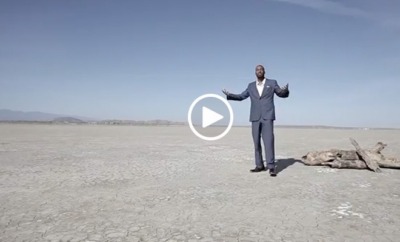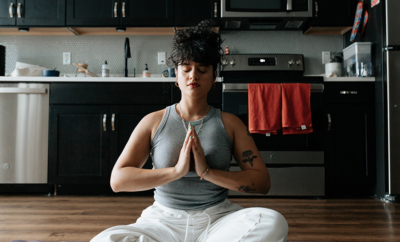You Are Not Your Past Traumas: These 4 Tips Will Help You Heal and Move On

I used to think of my past traumas as something that defined me and was the foundation of my present self. I believed I was strong because I was a “survivor” of my past and wore my traumas as battle scars.
When I was 3 years old, until age 7, my grandfather physically abused my brother and me. I remember the sharp sting when he slapped me across my face for handing a child more than one piece of candy during trick-or-treating.
I remember the sound of the wooden ruler snapping in half after he repeatedly struck my hand for breaking the clothes line. There were times when I woke up curled into a ball because he was beating me for not waking up early enough.
I lived in constant fear and was punished for arbitrary reasons. My parents knew it was happening and did nothing about it because, as they explained much later, we were recent immigrants and did not have any place to live, other than at my grandfather’s.
We moved out of my grandfather’s home eventually, but the memories of these past traumas remained with me for decades and so did the belief that I was not worthy or worth saving.
My belief of unworthiness became a subconscious controlling force in my adulthood: I took jobs that underpaid me, chose toxic relationships with men who cheated or were emotionally unavailable and strived to be a silent, compliant wallflower.
When we see how we label ourselves based on our past traumas and use it to justify our present circumstances, then we can see how we hold ourselves back.
By defining myself as a “survivor,” I merely survived in my day-to-day life and became the victim of my circumstances, until I finally recognized my stories as my subconscious limitations.
When we see how we label ourselves based on our past traumas and use it to justify our present circumstances, then we can see how we hold ourselves back. There are patterns and themes in our life that are shaped by our past.
Below are some tools to help us understand what our patterns are, why we hold on to them, and ways to work past our stories and victimization. These tools are for trauma healing so we can heal and move on.
Signs of Clinging to the Past and Why We Do it
When we think about the possibilities of our ideal life, what is holding us back from having the life we want? The way limitation from past traumas shows up in one aspect of our life, is the same way it shows up in all parts of our life, whether it be in love, money or health.
Here are a few indications of holding onto past traumas:
- Feeling stuck in life because of something that happened in the past
- A reccuring story from our past that keeps us from new experiences and in our comfort zone
- Using a story from the past to explain why our current situation isn’t ideal
- Conflicts in relationships due to judgments of a person based on unrelated past events
- Distrusting of life and making generalizations about people based on past experiences
- Having rigid “principles” and “rules” in life based on fear and a painful past
Our egos have built a sense of identity with and through our past. When we tell strangers “who we are,” it is built on the stories we tell ourselves, including our past traumas.
This is why our egos are often referred to as our “storied self.” When we repeatedly tell ourselves these stories, our ego needs to be ‘right’ to maintain its identity. So if we identify ourselves as “survivors,” we must continually have a struggle to “survive.”
Our egos have built a sense of identity with and through our past.
The stories we tell also serve to justify and excuse all the “wrongs” in our life. We may find it easier and safer to blame childhood abuse or parents as the reasons for our distant relationships, rather than to be vulnerable and open to others.
We can also use the past of having unfaithful partners to explain why we cannot presently find a fulfilling and committed relationship, rather than evaluate our own commitment issues. Victimhood excuses us from taking responsibility and ownership of what is lacking in our lives.
This is where trauma healing comes in.
How to “Un-identify” From Our Past for Trauma Healing
Living life in the present and recognizing what is possible for us can be difficult when we are constantly identifying our emotions and experiences with our past stories.
Here are 4 ways to “un-identify” with the past for trauma healing:
1. Seek Professional Help
There are some traumas that cannot and need not be confronted alone. There are plenty of mental health professionals who can help, and seeking help is a first step in trauma healing.
2. Recognize the Past Trauma as a Story
As real as the memory is in our mind, it is the ego reliving the past and we will never know if it truly happened in the way we remembered it. It also doesn’t matter what really happened because our memory of it is what our story is.
Seeing your past trauma as a story does not deny its actual occurrence, but knowing it is not an event that is happening in the present – nor is it true for the present moment – is the beginning of letting it go from our identity. It may help to say, “I am not my ____ [past event].”
3. Notice How Those Past Traumas Have Created Disbeliefs
This can mean disbelief about your identity, your life, your abilities and/or self-worth.
Do you find yourself saying, “This always happens to me because of ______, or because I am ______.”?
Somewhere in that blank spot is where a past trauma created that belief. When we see how a trauma is limiting us in different aspects of our life, we can acknowledge it and let it go.
4. Write a Letter to Your Trauma
Address a letter to your past trauma and write out all the ways it makes you feel and how you resent it. Do not hold back or be polite. The act of writing will help release its grip on your identity. When you are done, you can rip it up or burn it.
Want to do a burning ceremony with the letter you wrote to your trauma? Here’s How to Perform Your Own Burning Ceremony
Through the Process of Trauma Healing, We Take Back Ownership of Our Lives
The process of recognizing how our past stories play into our present circumstances can be challenging, and the process requires patience and compassion for ourselves. Our stories can become so fused with our identity that it can feel like a loss of self to see it as an “untruth.”
Once we start breaking our patterns, we will see how much more work it was to maintain our stories than to live without them. The stories that we held on to are not as significant as the reason we held on to them to begin with. They are the lessons our soul chose for our greater expansion.
Once we start breaking our patterns, we will see how much more work it was to maintain our stories than to live without them.
Recognize that each little step we take in un-identifying with our stories is ending victimhood and is taking back ownership of our life.
Accepting we are not our past may leave us with a “what now?” feeling because it opens up an uncharted path. But that is exactly and perfectly where we need to be.
We need to be the children we are deep inside, before we developed our self-doubt, fears and disbeliefs. Everyday we get to live unbound and without expectations. This means we get to try life, take risks, scrape our knees along the way, get back up, and discover what brings us joy.
Invite trauma healing into your life so you can heal, move on, and thrive!


This Month's Letter
From the Editor
Monthly motivation and food for
thought from our founder.






























Comments